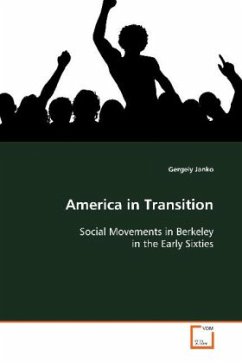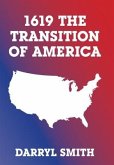The 1950s in the United States were characterized by
anti-communism and conformity. Much of the country
remained blind to the injustices and the
discriminatory practices of the society. The 1960s
brought radical and revolutionary change. The
catalyst of this change was social movements, which
collectively broke the consensual silence in the hope
of making a difference. The activists of these
interrelated movements, who were most often college
students, raised their voices against discrimination
that repressed and segregated the black
minority. Perhaps the most vibrant center of activism
was the San Francisco Bay Area, and its prestigious
educational center, the University of California in
Berkeley. Students in Berkeley in the early 1960s not
only became vocal about perceived injustices, but
also conflicted with the university, which banned
political activism on its campus. The consequent Free
Speech Movement and the Civil Rights Movement
transformed students in Berkeley and elsewhere into a
community, which prepared the ground for the large
scale social transition America went through in the
1960s.
anti-communism and conformity. Much of the country
remained blind to the injustices and the
discriminatory practices of the society. The 1960s
brought radical and revolutionary change. The
catalyst of this change was social movements, which
collectively broke the consensual silence in the hope
of making a difference. The activists of these
interrelated movements, who were most often college
students, raised their voices against discrimination
that repressed and segregated the black
minority. Perhaps the most vibrant center of activism
was the San Francisco Bay Area, and its prestigious
educational center, the University of California in
Berkeley. Students in Berkeley in the early 1960s not
only became vocal about perceived injustices, but
also conflicted with the university, which banned
political activism on its campus. The consequent Free
Speech Movement and the Civil Rights Movement
transformed students in Berkeley and elsewhere into a
community, which prepared the ground for the large
scale social transition America went through in the
1960s.








